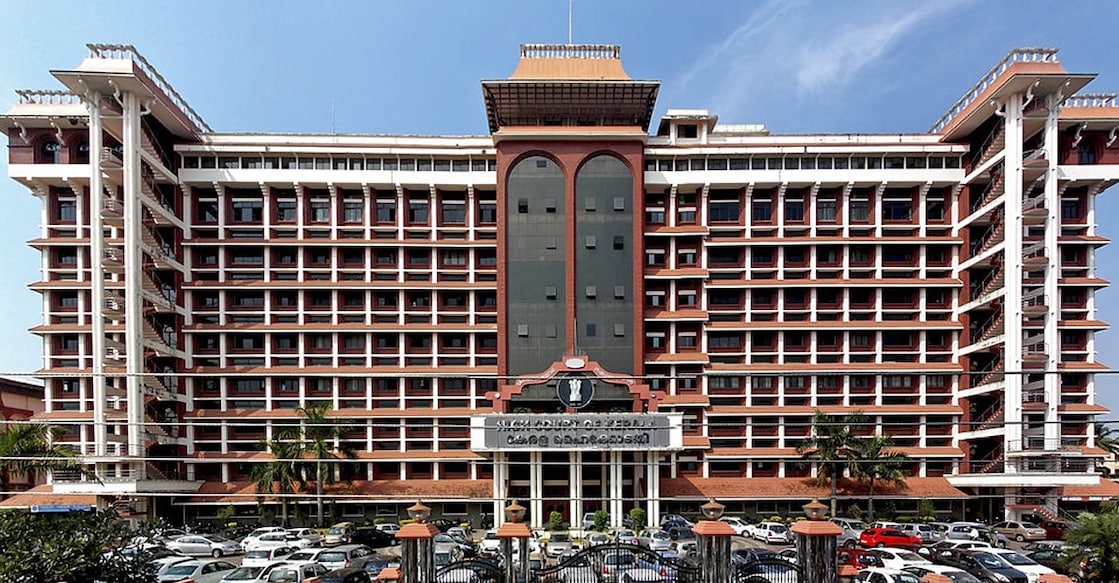'Waving black flag not defamatory': HC quashes case over protest against CM's convoy

Mail This Article
Kochi: The Kerala High Court has ruled that waving or showing a black flag at a person cannot be considered defamatory or an illegal act under Section 499 of the Indian Penal Code (IPC). The court further clarified that displaying any colour flag as a form of protest cannot be deemed defamatory without a specific law prohibiting such an action.
The petitioners were accused of waving a black flag at Chief Minister Pinarayi Vijayan's convoy on April 9, 2017, and allegedly using force against police officers. They were charged with offences under Sections 283 (obstruction of public way), 188 (disobedience to order of public servant), 500 (defamation), 353 (assault or use of force against public servant) in conjunction with Section 34 (common intention) of the IPC.
Justice Bechu Kurian Thomas noted that waving a black flag could be interpreted either as a symbol of support or protest, depending on one’s perspective. The court stated: “Although signs and visible representations can sometimes serve as a means of defaming a person, showing or waving a black flag at someone cannot be considered defamation, nor is it an illegal act. Even if a black flag was displayed to the Chief Minister's convoy, this act cannot be deemed defamatory under any interpretation of Section 499 of the IPC. A black flag can represent different things depending on the context. Waving a flag may be a sign of support or protest, and ultimately, it is a matter of perception. Generally, a black flag is used as a mark of protest. So long as there is no law prohibiting the waving of a flag in itself, such an action cannot be considered defamatory.”
The petitioners’ counsel argued that defamation charges could not be initiated based solely on a police report. It was also contended that no obstruction was caused to the public way, so Section 283 of the IPC was not applicable. Additionally, it was claimed that the petitioners did not use force against police officers, no injuries were inflicted, and the officers were not hindered in performing their duties, making Section 353 of the IPC inapplicable, Live Law reported.
Conversely, the public prosecutor argued that witness statements indicated that police officers were pushed and had their uniforms pulled while attempting to prevent obstruction to the Chief Minister’s convoy.
The court ruled that cognisance of an offence under Section 188 of the IPC could only be taken if a complaint was filed in writing by the public servant who issued the order or a subordinate to them. In this case, the court found that an offence under Section 188 was not applicable.
The court also found no evidence to suggest that the petitioners caused any obstruction, even temporarily, which would be necessary to invoke Section 283 of the IPC.
Additionally, the court observed that any minor physical interaction, such as a push or pull, is expected when preventing obstruction. It also noted that there were no allegations suggesting the police officers were deterred from their duties or injured in any way that would justify charges under Section 353 of the IPC.
The court remarked, “Section 95 of the IPC intends to prevent penalising trivial offences or negligible wrongs. If prosecution were pursued for every minor issue, we would have no time for anything else. Section 95 assists in such cases. Considering the circumstances, none of the other charges apply, and only Section 353 of the IPC remains. Given the nature of the allegations and the absence of assault or injury to the police officers, and because their duties were not obstructed, Section 95 IPC can be invoked to quash the offence under Section 353 IPC.”
Therefore, the Court concluded that no offences were made out against the petitioners as per the final report. As a result, the Court quashed the final report against the petitioners.


